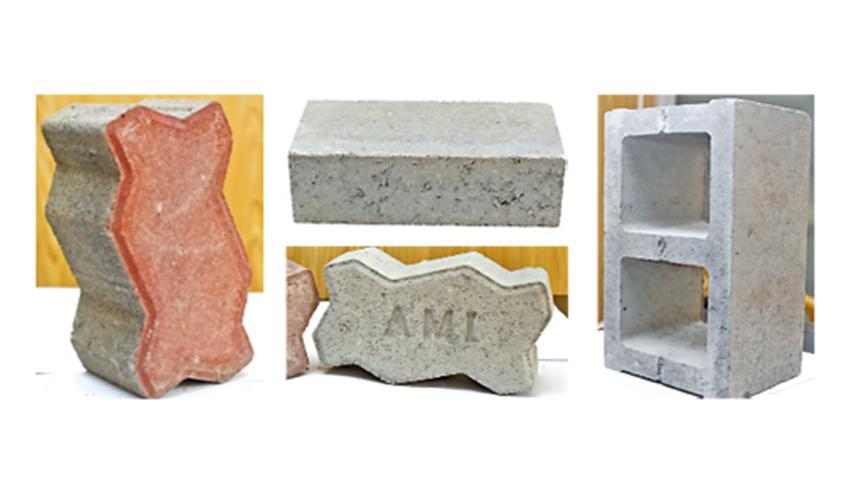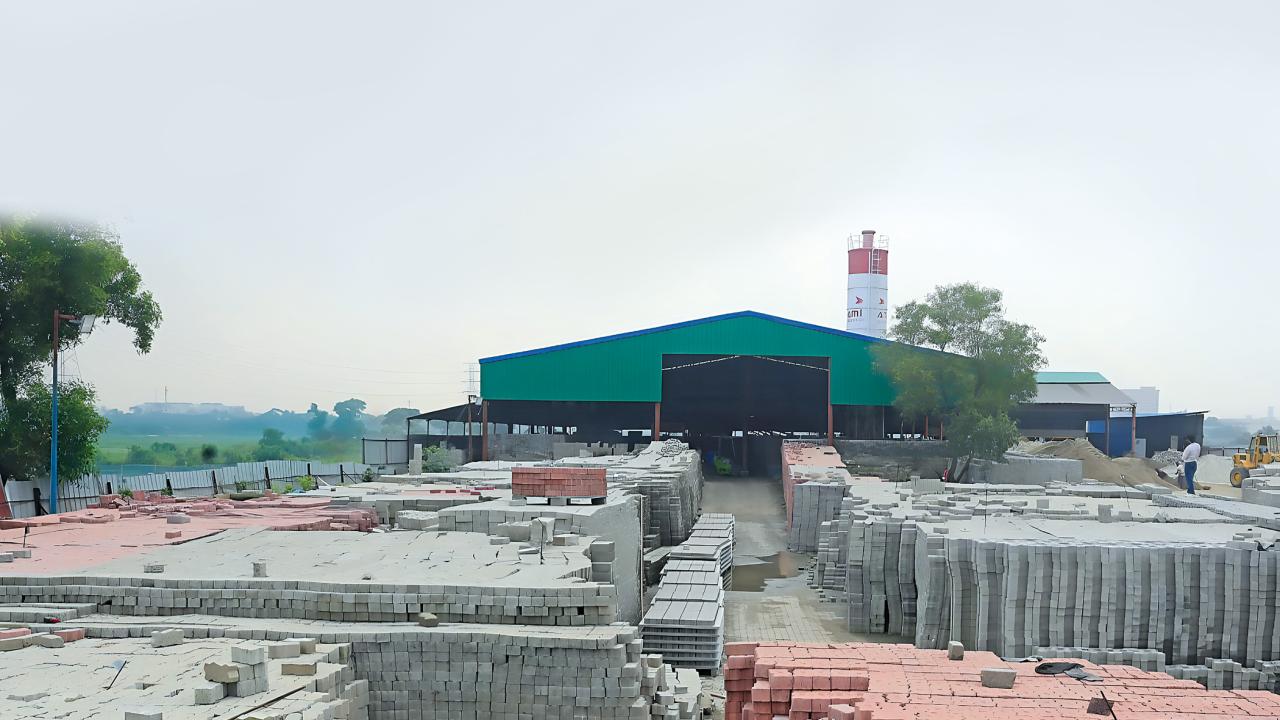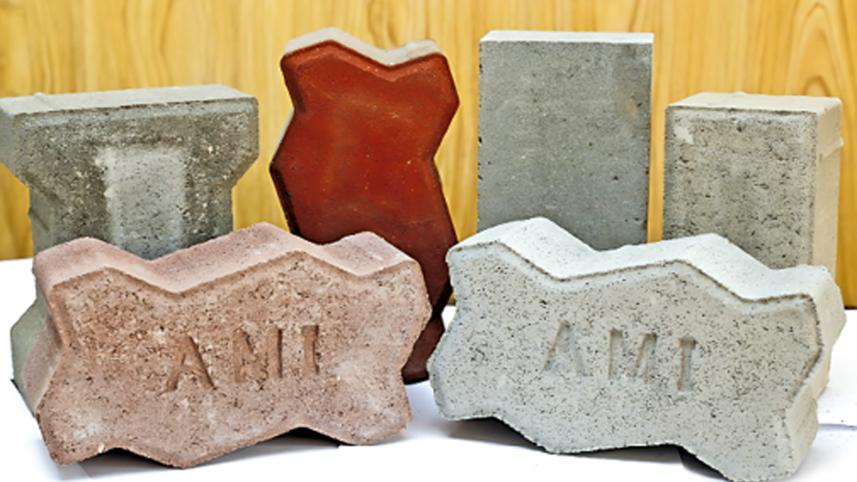Concrete blocks key to Bangladesh’s infrastructure growth

The Daily Star (TDS): Tell us about your journey into sustainable construction. Where did it all begin?
Maruf Mohsin (MM): We began working with this eco-friendly material back in 2012. That was my first project, just after I returned from the United States. I'm an engineer by profession. I completed my undergraduate degree in Biomedical Engineering and then earned a master's in Industrial Engineering, focusing on Engineering Human Management.
After working at Volkswagen, I returned to Bangladesh in 2012 and joined the family business. At the time, the situation wasn't like it is today—there was no AI or advanced technology. From the outset, I started envisioning the future of our group and set a goal to implement ERP (Enterprise Resource Planning) for business growth. That was on the software side. On the hardware side, my first project involved a machine that could produce bricks. Gradually, I took on more small projects, and then we embarked on what became our state-of-the-art, modern rolling mill. At the time, it was a major project where we introduced Italian technology in 2014. That was my "teeth-cutting" moment in managing a large-scale operation. Today, that initiative has evolved into what we now know as RS Steel.
Later, I realised that the technology at the time wasn't very advanced. Inter-vertical booming was occurring, and business was good. So, that brick project didn't quite take off commercially, but internally, we continued using those eco-bricks.
Then in 2023, we decided to take another step forward. With improved technology available, we saw an opportunity to enter the market competitively with these products. While travelling across countries like China, Japan, and India, we observed how they used materials such as paver blocks. We realised that just producing bricks wouldn't make the business sustainable. So, we installed a machine that could produce eco-friendly bricks of various sizes and shapes.

TDS: How does your production process contribute to environmental sustainability—both in terms of how the concrete blocks are produced and how they continue to address ecological concerns once used in infrastructure?
MM: Our production process is sustainable because of the types of raw materials we use. Others in the market produce similar products, but they often rely entirely on materials sourced directly from the environment. What we're doing differently is combining our industrial by-products with minimal environmental inputs to create our products. This has yielded several environmental benefits.
First and foremost, there are no emissions—no smoke at all. That's benefit number one. Secondly, the production process is quicker. Thirdly, our product reaches the required strength more rapidly, and that strength exceeds the industry average. We are leading in terms of strength, and our blocks attain it faster compared to others.
Our production process itself is environmentally friendly. Drawing on our long-standing industrial experience, we have set up a production system that is both efficient and sustainable. We maintain lead times and follow the first-in, first-out method. Lead time refers to minimising raw material storage while ensuring quick production and turnover. A significant portion of our raw materials now comes in-house from our steel and other production units. These in-house resources help us drastically reduce lead time.

As you know, pollution levels in Dhaka are extremely high. We are striving to contribute positively by ensuring zero emissions and zero pollution in our operations. Another major benefit is that our product also offers energy savings in buildings where it is used.
So, it's not just about environmental conservation—it's also about energy efficiency. We've run the calculations, and we can demonstrate the savings. That's where the benefits become truly apparent.
This is our approach: serving the environment, responding to the climate crisis, and meeting consumer needs. And, of course, you can't deceive the consumer—you must deliver value.
TDS: Could you tell us about your product range, and whether there are any pricing considerations for those interested in opting for your products?
MM: When it comes to profitability, I believe it must be sustainable. We need to stay competitive in the market, while also delivering value to the consumer. We're not here just to take—we want customers to feel satisfied and say, "Yes, this is good, please take it." We have built a reputation over the last 70 years, and we work hard to uphold that promise—to deliver the best product at the best price.
Our stock is always ready, and our factory is located in the heart of Dhaka, so we can easily deliver products anywhere. We also have a strong logistics network that allows us to deliver efficiently.
As for our product range—we offer everything from rectangular pavers, uni blocks, uni pavers, and interlocking blocks to erosion control blocks, which are increasingly important given current environmental degradation. These interlocking erosion-control blocks are used along riverbanks to prevent soil erosion.

TDS: Why do you emphasise the idea of being "all-rounders" in your work?
MM: With all these years of experience, we've become all-rounders. As industrialists, our role is to contribute to society and to the country—and in that sense, we believe we are all-rounders compared to many other communities. Everyone contributes in their own way, but we touch nearly every aspect of people's lives.
We are all-rounders in construction and development because we are committed not only to producing the best products but also to delivering cost-effective solutions. The right product, in the right place, at the right time—that's the commitment of a true all-rounder in construction.
TDS: What types of government policy reforms could help incentivise the use of sustainable concrete blocks?
MM: First of all, we need to establish clear industry standards. At present, various grades and categories of machinery are entering the market. The industry must define classifications for large-scale, medium-scale, and small-scale operations. Once that is in place, we will have taken the first crucial step.
Secondly, we must evaluate national demand against our production capacity—only then can we move forward in a strategic manner. We can't afford to start or shut things down on a whim.
The recent initiative to stop issuing new licences—that was an excellent step, and we wholeheartedly support it. In the future, the renewal of licences should be conditional on meeting a set of compliance criteria. If a business cannot meet those criteria, its licence should not be renewed. That kind of compliance framework must be enforced.
For traditional brick kilns, a robust compliance network needs to be established. A mobile code enforcement team should be deployed—something simple but functional and effective. Just as the steel sector requires environmental, fire, and factory regulations for licence renewal, the same should apply to brick kilns. Over time, this approach will help phase out polluting kilns.



 For all latest news, follow The Daily Star's Google News channel.
For all latest news, follow The Daily Star's Google News channel.
Comments